
The process of how to title land in the Philippines is different depending on the situation.
One of the first things you need to know is whether the land has ever had a title before since the titling of unregistered land is very different from the titling of registered land.
For land that has a title, but now needs to be transferred:
- Deed of Sale
- Deed of Donation
- Extrajudicial Settlement (EJS With Sale, EJS with Waiver of Rights)
For titling of unregistered land:
- Residential Free Patent
- Agricultural Free Patent
- Sales Patent
- Homestead Patent
- Judicial Titling
So, the very first step to title land in the Philippines (yes, even before you consult with a land lawyer) is to check whether the land had a title before and do due diligence.
Table of Contents
How to Check if Land is Registered

The first step to title land in the Philippines is to check if the land is registered.
This step is important to do.
Even if you consult with a land lawyer, he won’t be able to tell you which process to follow unless you determine that specific fact.
The processes for getting a title all first demand that you know whether the land was titled, so try to get this information first instead of wasting time and money at a land lawyer consult.
The Registry of Deeds is slowly computerizing.
Many titles are still not on the computerized system, so you will actually need to check at the Registry of Deeds in person.
It is not too difficult but it will take time.
Go to the Registry of Deeds where the land is located.
Ask them to check whether the land is titled and get a Certificate of No Title if it is untitled land.
If the land is titled, ask the Registry of Deeds to give you a Certified True Copy of Title, which they can do so long as you prove that you have a valid claim on the land – for instance, you are an heir.
This trip checks to see check the status of the land is important and must be done.
With this information, you can now determine whether you will start the process for the titling of unregistered land or whether you will be working instead on the transfer of an existing land title.
Processes for transfer of title for a land that previously had a title
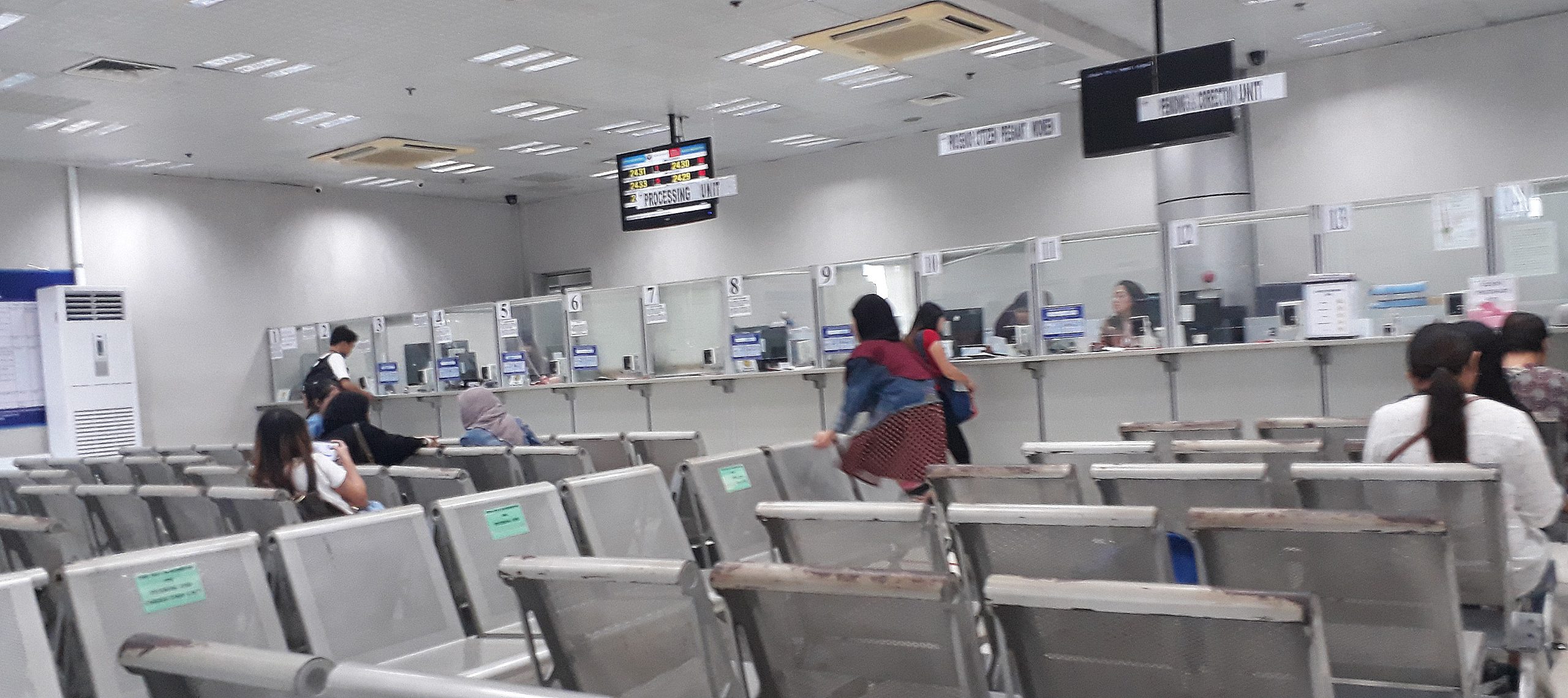
Now that you know that the land was previously titled, you know that you will be working on one of the transfers of title processes down below:
- Deed of Sale
- Deed of Donation
- Extrajudicial Settlement (EJS With Sale, EJS with Waiver of Rights)
The exact process that you will use will depend on your situation, so I will give a summary of each of the processes below and a link to one of our articles for more details.
As you can see, there are different processes and requirements for the transfer of title and you must know which one to apply.
You can consult with a Land Lawyer to help out – understandably, it can be confusing.
1: Transfer of Title through a Deed of Sale
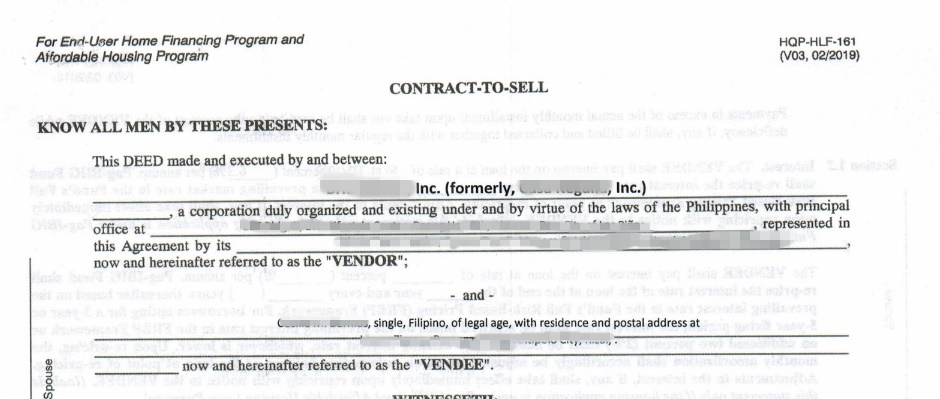
The Transfer of Title process through a Deed of Sale is used when:
- The owner is alive
- The title is in his name
The requirements for the transfer of title are the following:
- Notarized and signed Deed of Absolute Sale, authenticated if one of the parties is abroad
- Payment of BIR 6% Capital Gains Tax, 1.5% Document Stamp Tax, unpaid realty taxes and Registry of Deeds transfer fees
- Taxes must be paid within 30 days from notarization otherwise late fees will be assessed
- IDs and TINs of all the parties
- Original and Certified True Copy of the property documents such as Titles, Tax Declarations, Certificates of No Improvement, etc.
One of the requirements for the transfer of title is always the Original Land Title.
If the Original Land Title is lost or totally destroyed, the only way to get it is to go through a Reissuance of Title Court case.
If the Original Land Title is held by someone who has it and will not give it back, going through a Reissuance of Title case will mean that your new title may be canceled because the other title actually still exists.
In this case, try to come to an agreement with the other person to get the title back – or as a last resort, you may have to go to court and consult with a Land Lawyer.
Note also that one of the BIR requirements for the transfer of land title is the payment of the taxes within 30 days. If it is paid later, you will be subject to late fees.
2: Transfer of Title through a Deed of Donation
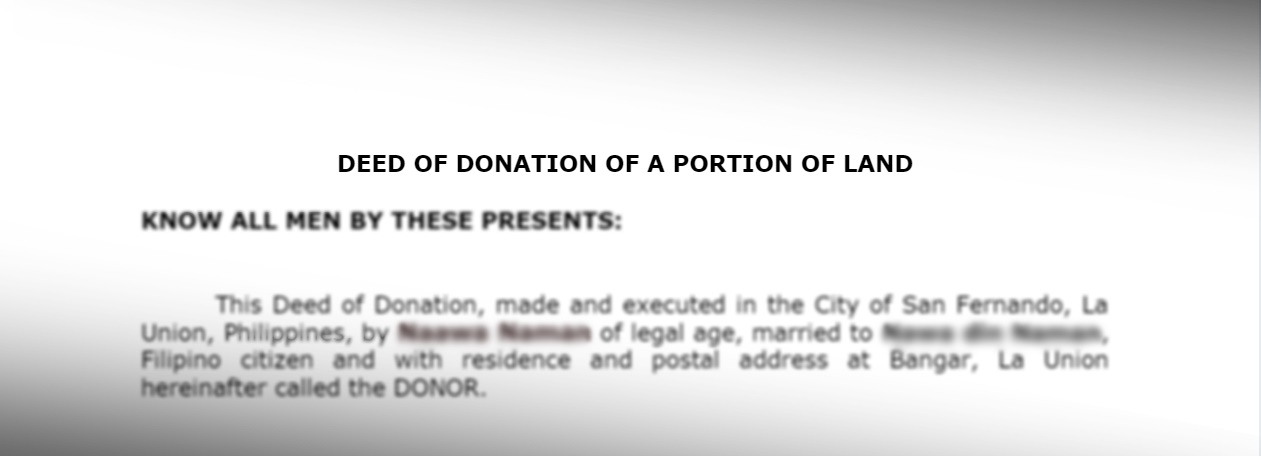
The Transfer of Title process through a Deed of Donation is similar to a Deed of Absolute Sale due to the TRAIN Law.
It is done when the:
- Owner is alive
- The title is in the owner’s name
The only difference is the transfer of title is through a donation instead of a sale so you would need a Deed of Donation instead of the Deed of Absolute Sale.
You would also be taxed 6% with the exception of a maximum yearly amount of Php 250,000 exempt from taxes.
Remember, you need to pay the taxes as it is one of the BIR requirements for the transfer of land title. It must be paid within 30 days from notarization or risk late fees.
3: Extrajudicial Settlement
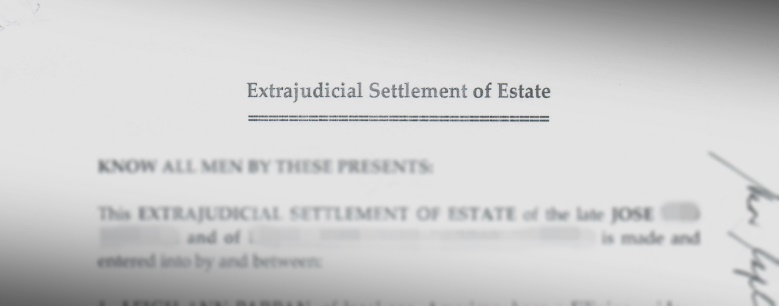
An Extrajudicial Settlement is done when:
- the owner is deceased
- when there is no will
If an estate is being settled and a sale is being done at the same time, then you would use an Extrajudicial Settlement with Deed of Sale.
If an estate is being settled and some of the heirs are waiving their rights, then you would use an Extrajudicial Settlement with Waiver of Rights.
The requirements for the transfer of title are greater than for a Deed of Absolute Sale or a Deed of Donation since you will need all the heirs to sign.
If the heirs disagree, then you must speak with a land lawyer since you may need to go to court.
The BIR requirements for the transfer of land title are more extensive but the deadline for payment of BIR estate taxes is a year from the death of the deceased.
You will need:
- Notarized Extrajudicial Settlement signed by all heirs and authenticated if heirs are abroad
- All the asset documents and their CTC such as the Original Property Title, Tax Declarations, Mortgages, and Certificates of No Improvement.
- Stock certificates, and vehicle registration documents, as applicable.
- Payment of BIR 6% Estate Tax, 6% Sales Tax and 6% Donor’s Tax (as applicable), 1.5% Document Stamp Tax, unpaid realty taxes and Registry of Deeds transfer fees
- IDs and TINs of all parties and PSA documents such as the birth, marriage and death certificates as applicable.
Expect this process to take several months if there are no issues with the documents and all the heirs agree.
However, if there are issues with the documents (and there always are) or the heirs do not agree, consult with a land lawyer to see if you need to go to court.
Processes for transfer of title for a land that NEVER had a title
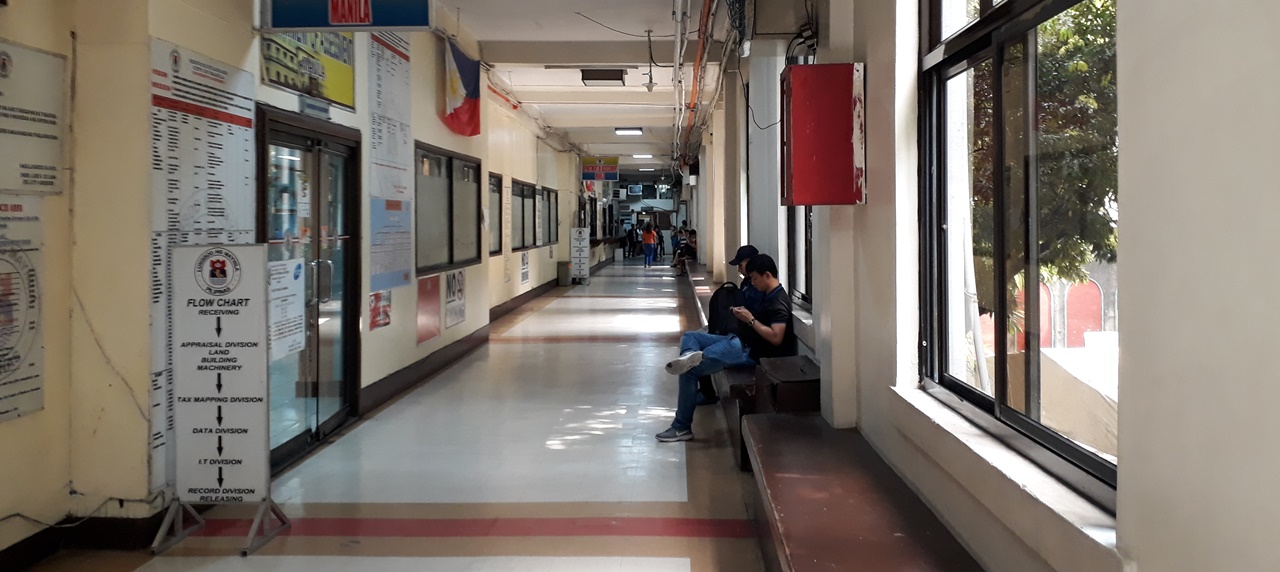
If you find out that the land NEVER had a title, then one of the processes for titling unregistered land can apply:
- Residential Free Patent
- Agricultural Free Patent
- Miscellaneous Sales Patent
- Homestead Patent
- Judicial Titling
4: Residential Free Patent
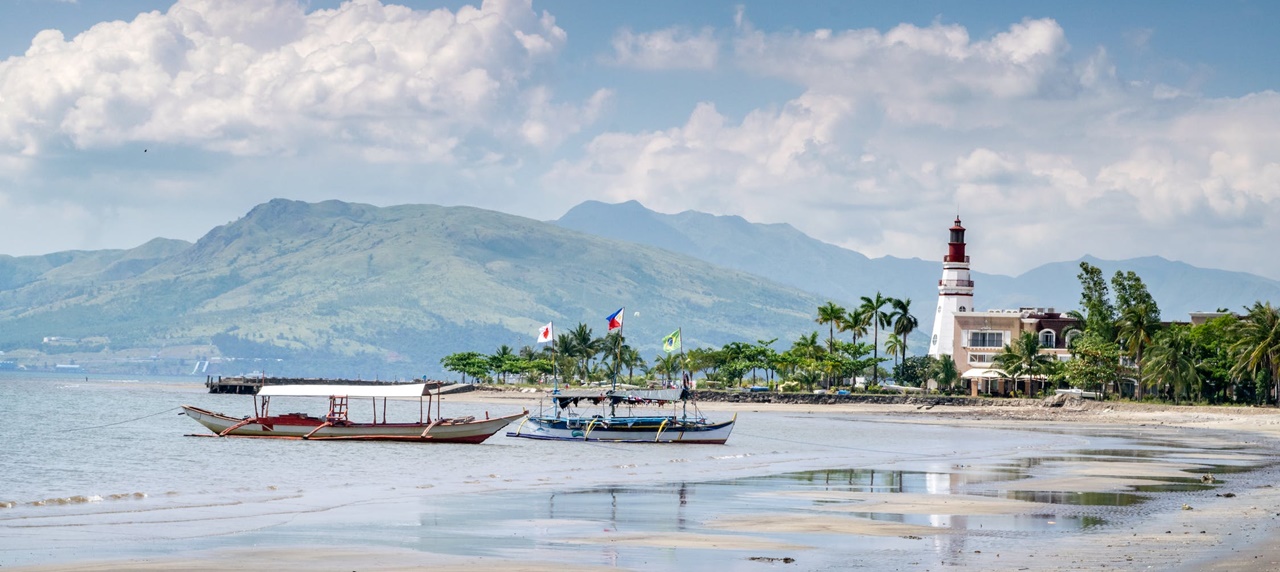
If the land was never titled and the land you wish to title is residential, you will instead complete DENR requirements for land titling instead of working with the BIR.
You will use this process when:
- The land was never registered
- You are a Filipino citizen with less than 12 hectares of land
- You wish to accomplish the titling of unregistered land that is zoned as agricultural which can only be 200 sqm to 1,000 sqm, depending on the location
- You and your predecessor in interest have been an occupant in good faith for a minimum of 10 years
The DENR requirements for land titling are a lot and can take a while, so for a complete discussion please read our article on Residential Free Patents. Briefly, they are:
- Department of Environment and National Resources (DENR) Residential Free Patent application, DENR Certification that the land is alienable and disposable, DENR V37 Approved Survey Plan with a technical description
- Land Registration Authority Certification, if applicable
- Regional Trial Court Certification of no proceedings against the land
- Local Government Unit Certification of Residential Zoning
- Documents for valid ownership such as and Extrajudicial Settlement (EJS), a Deed of Absolute Sale (DOAS), a Deed of Donation (DOD), etc.
The DENR requirements for land titling may include the transfer of title documents such as the EJS or the Deed of Absolute Sale or Donation.
So, it’s possible you might have to do 2 processes when working on the titling of unregistered land.
It can get complicated fast.
Theoretically, you could do this by yourself – but it’s very, very hard.
Read our article on full details on Residential Free Patent – or alternatively, consult with a land lawyer to get help.
5: Agricultural Free Patent

If the land is untitled and it is agricultural, you can complete DENR requirements for land titling under Agricultural Free Patent.
This process is used when:
- You are a Filipino will less than 12 hectares
- The land is alienable and disposable, zoned agricultural and was never titled
- You and your predecessor in interest have occupied and cultivated the land for at least 20 years in good faith
You will need many of the same documents and go through roughly the same process as a Residential Free Patent.
A brief list of DENR requirements for land titling:
- Department of Environment and National Resources (DENR) Agricultural Free Patent Application, Survey Plan and Technical Description, Certification that land is alienable and disposable
- Land Registry Authority of land status, if applicable
- Regional Trial Court (RTC) of no proceedings against the land
- Documents showing your claims such as Extrajudicial Settlement (EJS), Deed of Absolute Sale (DOAS) and Deed of Donation (DOD)
Read up on the BIR requirements for the transfer of land title up top if you need to do an EJS, DOAS and DOD.
Theoretically, all the processes for titling of unregistered land can be done yourself. However, it is quite difficult as we explain in our Agricultural Free Patent post.
It often requires a Land Lawyer’s advice.
6: Miscellaneous Sales Patent

A Miscellaneous Sales Patent is another way to title land in the Philippines.
There are actually several types of sales patents, but I’ve focused on the Miscellaneous Sales Patent under RA 730.
A Miscellaneous Sales Patent may be used when:
- When the other types of Patents do not apply
- When the DENR and the LGU declare the land available for sale under RA 730
DENR requirements for land titling under a Miscellaneous Sales patent are similar to other patents with a few additions:
- DENR Sales Patent Application, Survey with Technical Description, Geo-tagged photo of house and land
- Barangay Clearance of No Dispute and Barangay Certification of Lot Titling
- Assessor’s Certificate of No property
- IDs of Applicant, Notarized Affidavits of Income/Support and a Special Power of Attorney, if applicable
- Valid Claims such as an EJS, Deed of Sale, Deed of Donation and all accompanying documents such as PSA documents, etc.
In many cases, it is better to use the Residential or Agricultural Free Patent processes to title land in the Philippines as they are simpler and do not require payment for the land.
Read our post on Miscellaneous Sales Patents under RA 730 for more details
7: Homestead Patent

A Homestead Patent is another way to title land in the Philippines through the DENR. It is used when:
- The land is untitled agricultural land
- The applicant is a Filipino who does not own more than 12 hectares and who resides on the property
Like the other processes, the DENR requirements for land titling are extensive:
- DENR Homestead Application, Certification on the Land Classification, Survey and Technical Description
- RTC Certification of no proceedings re the land
- Certification from the Municipal Agrarian Reform Office (MARO) that the applicant is not a CARP beneficiary
- Barangay certification of occupancy and residence
- Other requirements
8: Judicial Titling
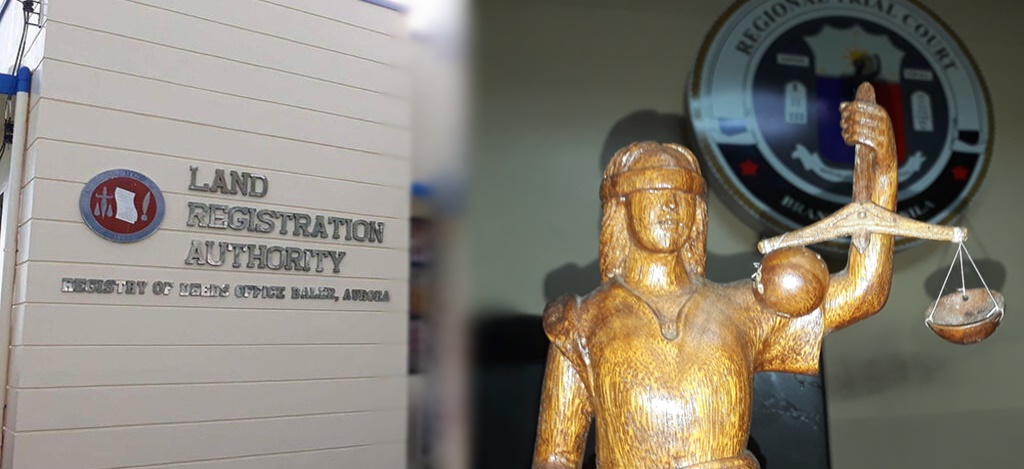
Judicial Titling is another way to title land in the Philippines and it requires court.
It is used when:
- You and your predecessors in interest have been in open, continuous, notorious and exclusive possession of alienable and disposable land under a bona fide claim of ownership since June 12, 1945, under PD 1529
- If you acquired ownership under the provision of existing laws
- Those who have acquired ownership of private land by right of accession or accretion
- Those who have acquired land in any other manner provided for by law.
Judicial titling requires a court case, which is in some cases unavoidable if you wish to title land in the Philippines.

